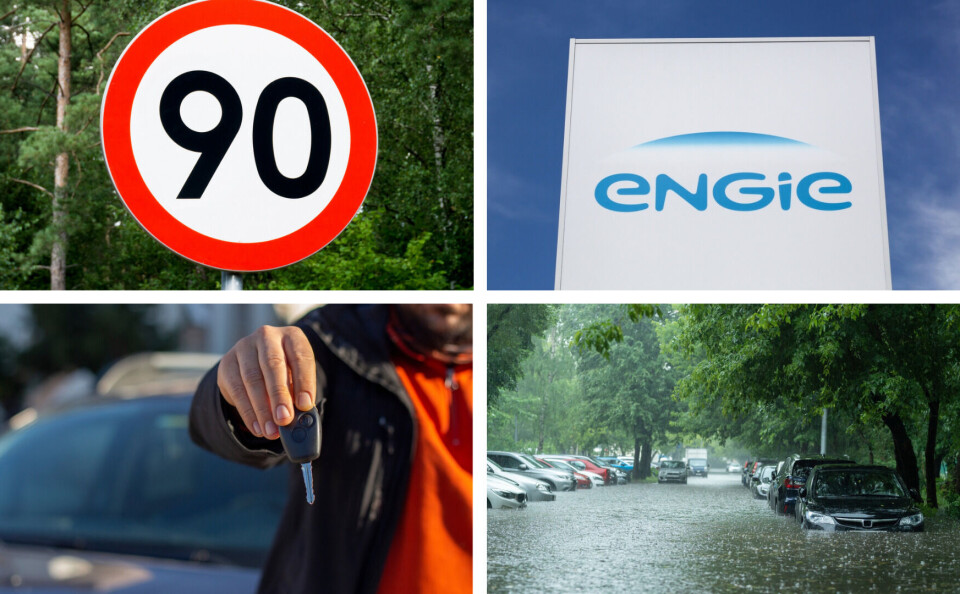-
White storks make strong return in France via nest ‘platforms’ and clipped wings
The Ligue pour la Protection des Oiseaux shares the conservation challenges in saving these birds from extinction
-
Hosting scheme in south-west France lets newcomers sample lifestyle
Households in nine Dordogne communes volunteer under Mes Nouveaux Voisins scheme
-
French boulangeries demand right for staff to work on May 1 so they can open
Artisan bakery owners can work but employees cannot, while certain industrial bakeries are allowed to remain open with workers
French doctors' strike, speed limits: 5 articles you may have missed
We also look at how to avoid second-hand car scams, a gas bill deadline and tips to keep yourself safe in heavy rain when at home or in your car

1: Where are French speed limits back up to 90km/h?
The Var in the south of France has become the latest department to return some of its secondary roads to the pre-2018 speed limit of 90km/h.
Around 6% of departmental roads there now have the new speed limit, totalling around 170km of roads overall. We provide a list of which roads are concerned and a map showing where they are located.
Over 50 departments have now returned at least some of their departmental roads to the 90km/h speed limit after a 2019 law change meant local authorities could decide the limits themselves.
The article includes an interactive map showing which departments have returned to the original speed limits and on how much of their road network the changes apply.
Read more: Another French department returns to 90km/h limit on some roads
2: Prepare for potentially long doctor strike in October
Major doctors’ unions are calling self-employed GP doctors to stage an ‘indefinite’ strike from October 13.
All unions representing this group of medics are urging members to join the expected general strike on October 13 with GPs wanting patient consultation fees in France to be raised.
The MG France union is calling for intermittent strike action on key dates after October 13 but other large unions are asking members to engage in renewable strike action from this day, with no defined end date.
Slots for GP appointments may therefore be scarce in the days or weeks after the strike so if you need to see a doctor, it may be best to get an appointment before if possible.
Read more: Call for an unlimited GP doctors’ strike in France from October 13
3: Avoid scams when buying used cars
Around 10% of all cars sold second-hand in France display a fake kilometrage reading, showing the car as having been used much less than it actually has.
This number rises significantly for cars over 20 years old.
To limit scams of this kind you can view the HistoVec site, which offers a free car history of second-hand vehicles – including kilometrage readings from previous roadworthiness tests.
The service is free and you can ask any seller to update the site with the car’s history and details before buying it (if the details are not already there) – it is a voluntary-use site but an owner’s reluctance to use it could indicate something is wrong.
Read more: Tips to avoid kilometrage fraud when buying second-hand car in France
4: Last week for Engie customers to download old bills
Engie customers wanting to download any of their historic regulated-tariff energy bills can only do so until September 30.
After this date they will no longer be available online.
Engie emailed customers to state that the ability to download previous bills (those before the introduction of non-regulated tariffs for all customers) would end next week.
It urged those who do not have a copy of these bills to download them onto a device before they lose the chance to do so.
The government recommends keeping energy bills for up to five years in the case of dispute over payments.
Read more: Act now if you want copies of regulated tariff French gas bills
5: What to do during heavy rain
A number of departments were recently put on heightened alert for heavy rain and flooding as storms swept their way across France.
This article offers some tips for what you should do – and what you should avoid – if you find yourself caught during a particularly strong downpour.
Most of the advice centres around staying in a safe location – indoors if possible – and not taking risky decisions such as collecting children from school (they will be safer in the school than outside).
It also details what you can do if outside and driving during a storm.
Read more: What to do (and not do) during heavy rain and flood alerts in France
























